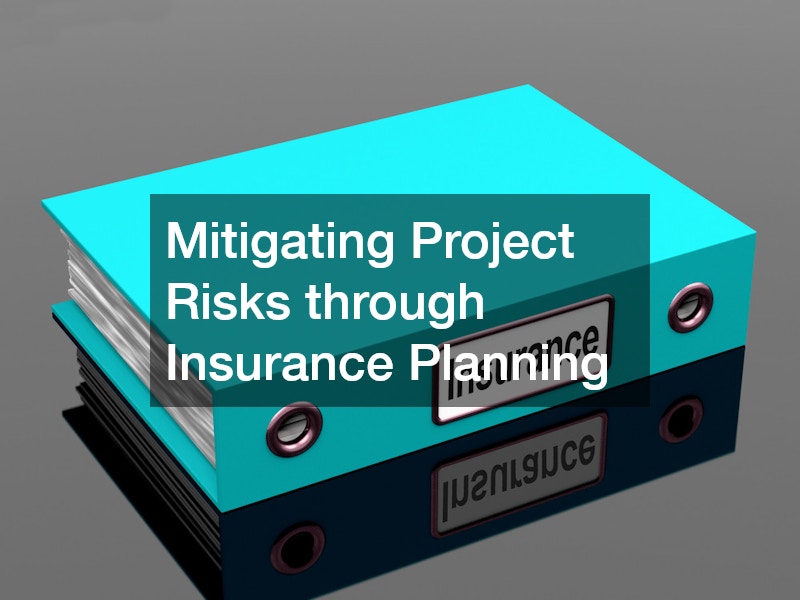Managing complex engineering projects requires more than technical skill—it demands strategic planning, efficient workflows, and the ability to anticipate challenges before they occur. From initial design concepts to final project delivery, every stage involves multiple stakeholders, overlapping responsibilities, and intricate technical details. Engineers must consider structural integrity, resource allocation, compliance with regulatory standards, and cost efficiency, all while maintaining high-quality outcomes. With the scale of modern infrastructure projects growing, streamlining these processes has become an essential skill for project managers and engineering teams alike.
Successful projects rely on collaboration between specialized teams, advanced technological tools, and a well-defined strategy that incorporates risk management and operational efficiency. When executed properly, this approach minimizes delays, prevents costly errors, and ensures deliverables meet or exceed expectations. Project managers must balance competing priorities—budget, schedule, and scope—while navigating complex logistical challenges, stakeholder expectations, and unforeseen site conditions.
This guide outlines ten key strategies to optimize engineering project workflows. Each strategy focuses on a critical component of project management, from leveraging the right expertise to applying advanced technical solutions, ensuring accurate data collection, and managing construction processes efficiently. Additionally, it addresses risk mitigation, supply chain management, and problem-solving techniques that can transform a complex engineering project into a streamlined, high-performing operation. By following these strategies, project managers and engineering professionals can ensure projects are delivered on time, within budget, and with the highest standards of quality, safety, and innovation.

Leveraging Expert Engineering Teams
Collaborating with experienced engineering firms can significantly enhance the efficiency and quality of complex projects. These firms bring specialized expertise across multiple disciplines, allowing project managers to centralize oversight while benefiting from targeted skills in structural design, materials science, mechanical systems, and civil engineering. The selection of the right firm directly impacts a project’s success, as experienced teams reduce errors, anticipate technical challenges, and implement best practices effectively.
Engineering teams also play a critical role in resource allocation and project scheduling. By leveraging their previous experience, they can identify potential bottlenecks, optimize task sequences, and ensure seamless coordination between different stakeholders. For instance, an engineering firm with expertise in both civil and mechanical systems can synchronize design work with construction timelines, reducing delays and improving overall project flow.
Practical steps for selecting a firm include reviewing past project portfolios, assessing team expertise, evaluating communication skills, and confirming that their methodologies align with your project goals. Regular progress meetings, shared digital platforms, and defined communication protocols help maintain accountability and streamline decision-making.
Implementing Advanced Technical Approaches
The integration of advanced engineering solutions is vital for streamlining complex projects. These solutions include cutting-edge software, simulation tools, and data-driven platforms that improve planning, design, and execution. By applying digital modeling, project managers can visualize construction sequences, detect potential conflicts, and optimize structural designs before physical implementation begins.
Engineering solutions such as Building Information Modeling (BIM) enable stakeholders to share a centralized digital representation of the project. This promotes collaboration, reduces rework, and improves decision-making accuracy. For example, using 3D modeling software allows engineers to identify interferences between mechanical, electrical, and plumbing systems, preventing costly on-site adjustments.
Automation and predictive analytics further enhance project efficiency. These technologies provide real-time insights into resource allocation, labor utilization, and material consumption. By forecasting potential delays or cost overruns, engineering solutions empower teams to make proactive adjustments and maintain project timelines.
Moreover, advanced solutions support sustainability initiatives by optimizing energy use, materials, and waste reduction. When implemented effectively, these tools ensure that projects not only meet technical specifications but also adhere to environmental and regulatory standards. The combination of innovation and precision makes engineering solutions indispensable for modern complex projects, allowing teams to deliver superior outcomes while minimizing errors and inefficiencies.
Aligning Projects with Regional Growth Initiatives
Strategically aligning engineering projects with regional growth initiatives can streamline approvals, funding, and long-term utility. Understanding how a project contributes to the local logistics economic development ensures it meets both community needs and regulatory expectations. Projects that complement regional infrastructure, transportation networks, and urban planning priorities often receive enhanced support from local authorities, facilitating smoother execution.
Incorporating economic development considerations helps teams anticipate potential bottlenecks in permitting, environmental compliance, or community engagement. Engineers can integrate design features that enhance local mobility, provide job opportunities, and improve sustainability outcomes. By aligning project objectives with municipal and regional development plans, stakeholders can create mutually beneficial outcomes that accelerate completion timelines and reduce administrative friction.
Practical implementation includes analyzing regional growth reports, engaging with local planning authorities, and incorporating scalable design solutions that accommodate future expansion. Considering transportation logistics, supply chain networks, and accessibility ensures projects are not only technically efficient but also socially and economically advantageous. By integrating logistics and economic development principles into project planning, teams create robust strategies that improve outcomes for both the engineering project and the surrounding community.

Ensuring Accurate Site Measurements and Data
Accurate site measurements and detailed surveying are critical for minimizing risks and ensuring construction precision. Civil engineer surveyors provide expertise in mapping topography, measuring boundaries, and assessing soil stability. Precise data collection forms the foundation for sound engineering decisions, reducing costly errors and design adjustments.
Surveyors use advanced technologies such as GPS mapping, laser scanning, and drones to gather highly accurate spatial data. This information informs structural layouts, grading plans, and utility placements, ensuring that design parameters match real-world conditions. The reliability of these measurements directly impacts project efficiency, resource allocation, and safety compliance.
Collaborating with civil engineer surveyors from the planning phase allows project managers to incorporate accurate measurements into digital models and construction schedules. Early identification of potential site challenges, such as uneven terrain or flood-prone areas, allows teams to design solutions proactively. By ensuring that surveys and measurements are precise, engineering projects are streamlined, risks are minimized, and project quality is maintained from concept to completion.
Optimizing Construction Management Workflows
Efficient construction management is the backbone of complex engineering projects. Commercial construction management services streamline project execution by coordinating teams, tracking progress, and ensuring adherence to budgets and timelines. These services provide professional oversight, risk assessment, and workflow optimization, allowing project managers to focus on strategic decision-making.
Effective workflows include task sequencing, resource allocation, and real-time monitoring of project milestones. Construction management teams often utilize project management software to track labor productivity, material availability, and subcontractor performance. This integration ensures that issues are identified and addressed promptly, reducing delays and cost overruns.
Moreover, construction management services help maintain quality assurance and regulatory compliance. Through systematic inspections, documentation, and reporting, teams uphold industry standards and reduce liability risks. By leveraging these professional services, engineering projects benefit from structured oversight, streamlined operations, and improved collaboration between multiple stakeholders. Ultimately, optimized construction management enhances efficiency, safety, and project reliability.
Enhancing Structural Reliability and Roofing Solutions
Structural integrity is crucial in ensuring the long-term durability of a project, and roofing systems play a significant role in overall reliability. Commercial roofing contractors specialize in designing, installing, and maintaining roofs that withstand environmental stresses while supporting operational requirements. A properly installed roof protects the structure, reduces maintenance costs, and enhances energy efficiency.
Advanced roofing solutions incorporate materials engineered for resilience, including reinforced membranes, metal panels, and insulated systems. Roofing contractors assess structural load, climate conditions, and design specifications to implement solutions that optimize durability. Regular maintenance plans, inspections, and timely repairs are integral to preventing leaks, structural damage, and potential operational disruptions.
By integrating commercial roofing contractors early in the planning and design phases, projects can mitigate structural risks and align roofing solutions with overall engineering objectives. This proactive approach ensures longevity, safety, and enhanced performance, contributing to the streamlined execution of complex projects.

Mitigating Project Risks through Insurance Planning
Risk management is a critical component of engineering projects, and commercial insurance provides a protective framework against unforeseen events. Insurance plans cover liabilities such as property damage, worker injuries, and contractual disputes, ensuring financial stability throughout the project lifecycle.
Engineering teams must assess potential risks and identify appropriate coverage levels to protect assets and stakeholders. Policies may include general liability, builder’s risk, and professional indemnity coverage, each tailored to project-specific needs. Incorporating insurance considerations into project planning helps prevent disruptions and minimizes the impact of unexpected incidents on timelines and budgets.
Proactive risk assessment, coupled with comprehensive commercial insurance, ensures that teams can focus on engineering tasks without constant concern over potential liabilities. This strategic approach safeguards the project, reinforces stakeholder confidence, and promotes smoother execution of complex operations.
Streamlining Supply Chains for Time-Sensitive Materials
Effective management of supply chains is essential for projects that rely on sensitive or perishable materials. Cold chain logistics refers to the transportation, storage, and handling of temperature-sensitive products, ensuring quality and integrity from origin to construction site. Engineering projects increasingly incorporate specialized materials that require precise environmental control, such as adhesives, composites, and prefabricated components.
By establishing reliable cold chain logistics, project managers can prevent material spoilage, maintain consistency, and avoid costly delays. Coordination with suppliers, monitoring temperature conditions, and scheduling timely deliveries are crucial elements of streamlined logistics.
Integrating cold chain logistics into overall project planning enhances predictability, reduces waste, and ensures materials are available exactly when and where they are needed. The result is improved efficiency, lower operational risk, and smoother execution of complex engineering projects.
Strengthening Foundations and Material Management
Foundations are the backbone of any engineering project, and collaboration with a commercial concrete company ensures strength, durability, and compliance with design specifications. Concrete quality, curing methods, and installation techniques directly impact structural performance and long-term reliability.
Material management includes procurement, storage, and testing of concrete and related materials. Proper handling reduces waste, ensures consistency, and optimizes construction schedules. Concrete companies often provide technical support, advising on mix designs, reinforcement strategies, and site-specific requirements.
By partnering with experienced commercial concrete companies, engineering teams enhance foundation integrity, streamline construction workflows, and mitigate risks associated with poor material performance. This integration ensures projects meet structural and safety standards efficiently, supporting overall project success.

Applying Strategic Problem-Solving Approaches
Engineering projects inevitably encounter challenges, from technical conflicts to resource constraints. A structured solution-oriented approach allows teams to identify root causes, evaluate alternatives, and implement effective corrective actions. Problem-solving frameworks, such as Lean, Six Sigma, and root cause analysis, provide systematic methodologies to address issues efficiently.
Collaborative problem-solving encourages input from all stakeholders, leveraging collective expertise to develop innovative and practical solutions. Documenting solutions ensures knowledge retention for future projects, creating a continuous improvement cycle.
Applying strategic solutions enhances decision-making, reduces downtime, and ensures project continuity. By fostering a proactive, solution-focused culture, engineering teams can navigate complexity with confidence, streamline operations, and maintain consistent progress toward project objectives.
Streamlining complex engineering projects requires an integrated approach that combines technical expertise, advanced solutions, strategic planning, and effective management. Leveraging skilled engineering firms ensures access to specialized knowledge and resources that improve workflow efficiency and reduce errors. Implementing advanced engineering solutions, such as BIM and predictive analytics, further optimizes project planning, design, and execution. Aligning projects with regional logistics and economic development initiatives enhances regulatory compliance, stakeholder engagement, and community benefits.
Accurate site measurements provided by civil engineer surveyors form the foundation for precise construction, while commercial construction management services oversee workflows, resources, and timelines, ensuring smooth project delivery. Commercial roofing contractors and concrete companies strengthen structural integrity, safeguarding project reliability and longevity. Risk management through commercial insurance, coupled with efficient cold chain logistics, ensures continuity and resource availability. Additionally, strategic problem-solving approaches provide a proactive framework for addressing challenges and maintaining project momentum.
By integrating these strategies, project managers can significantly reduce delays, minimize costs, and achieve superior project outcomes. Streamlined processes result in high-quality deliverables, improved stakeholder satisfaction, and enhanced operational efficiency. Ultimately, embracing these key strategies empowers engineering teams to navigate complexity, implement innovative solutions, and deliver projects on time, within budget, and with lasting value. Successful engineering project management is not only about technical execution—it is about creating systems, relationships, and workflows that optimize every facet of the project lifecycle, ensuring sustainable growth, resilience, and excellence in every endeavor.
